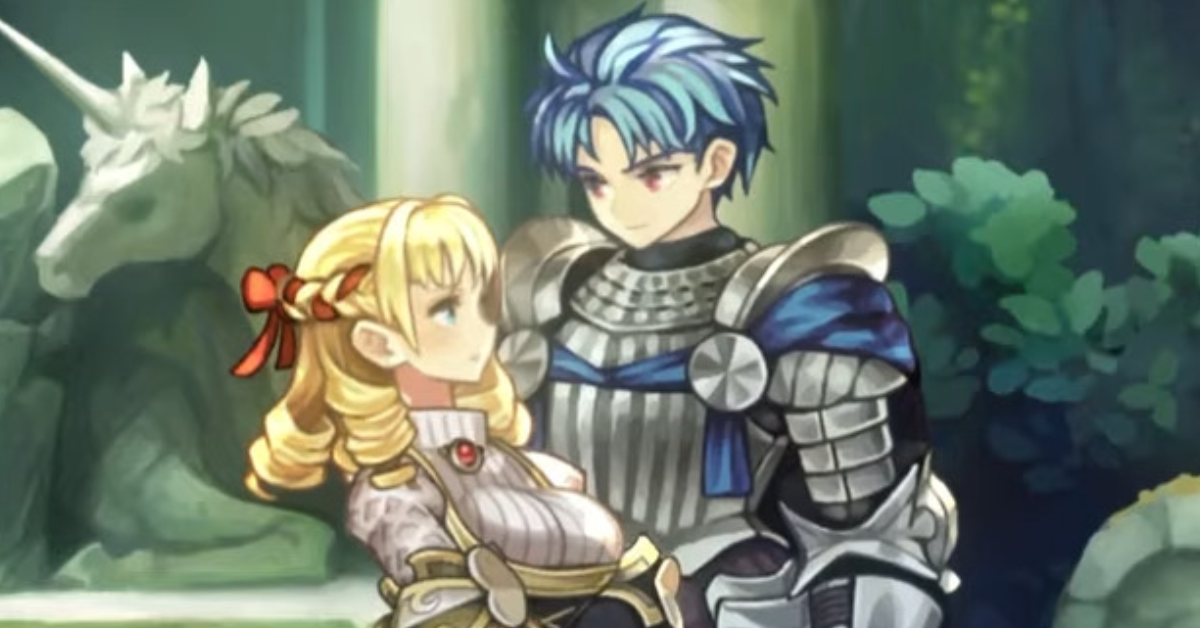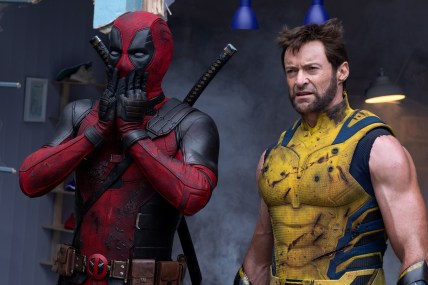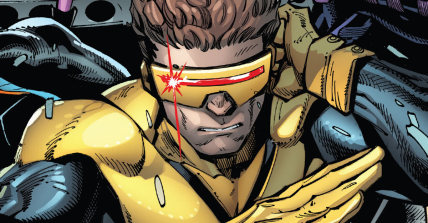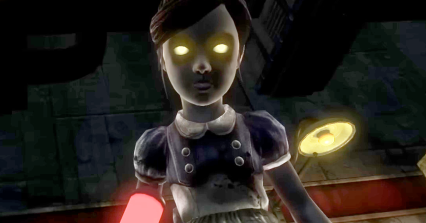‘Final Fantasy Tactics’ Director Responds To Western Localization Discourse Surrounding ‘Unicorn Overlord’: “It Is Unacceptable For Someone To Alter A Work Without Considering The Original Author’s Intent”

After Unicorn Overlord‘s English translation came under fire for being more ‘flowery’ than its original Japanese release, Final Fantasy Tactics director Yasumi Matsuno stepped in to offer a stern but sympathetic take on the abysmal and disrespectful state of the Western localization industry.

RELATED: ‘Final Fantasy VII Remake’ Mod Restoring Tifa’s Uncensored Cowgirl Costume Removed By Nexus Mods
On February 21st, Vanillaware launched a demo for their then-upcoming-and-now-released tactical JRPG Unicorn Overlord.
Upon release, thanks the rising awareness among consumers regarding the West’s blatant and continual mistreatment of Japanese works, the demo found itself subjected to intense scrutiny for possible localization changes by various players.
Among these players was Twitter user @zakogdo, who after comparing the Japanese and English demos of the game took to the social media platform to inform the public, “After playing [the English demo], I can say quite confidently that the localisation is abhorrent.”

Providing “a thread of numerous examples” to support his point,@Zakogdo first noted how the difficulty names were changed – seemingly to avoid offence to anyone who wished to play the easier modes.
These were changed from Casual, Tactical, and Expert to Story, Normal, and Hard. (Notably, early previews of the game had used ‘Sweet’ instead of ‘Story’.” Early previews had “Story” as “Sweet.”
“They made it less different to JP,” theorized @Zakogdo, “but it seems ‘casual’ is still a dirty word these days.”

Continuing, @zakogdo then highlighted over thirty scenes wherein the game’s dialogue had been edited from ‘normal’ speech to some kind of faux-Shakespearen prose.
“This reeks of localisers who think themselves better writers than the original Japanese authors,” opined @Zakogdo. “This is the source of many of the loc’s problems.”

For example, instead of “We completely fell for it,” the English version sees the character Lex state, “Guy laid out the bait, and we had to take a nibble.” In another case, Renault’s line about “Decided to quiet down at last, hm?” has been changed to “So the foal has finally ceased braying, hm?”
There were also cases where in addition to being made more ‘theatrical’, some lines of dialogues saw their intents changed completely.
A scene where Alain insists he’s fine and asks a knight to aid his mother has been changed English to instead have him chastise the knight for “just standing there” and essentially ‘shame’ him into
Rolf is turned into a pessimist, Clive seems to mistake Adel wanting to recapture his kingdom as “making merry,” Alain seems to mock or tease a friend’s swamp-land home he’s been tasked with liberating, and more.
Zakogdo also notes that “Chloe’s dialogue is rewritten to add in regular sarcastic comments and jabs at other characters when they weren’t present in JP. She is somewhat rude in JP, but the EN script has played it up far more and makes her kind of obnoxious.”

At one point, Priestess Scarlett admits to being scared after an ambush, but in English states she’s “Only shaken, that’s all.” Other female characters are also shown to have any shock or lack of confidence stripped away in English.
The knight Beaumont doesn’t seem particularly posh or mannerly in Japanese, yet in English seems to not only more verbose (like the rest of the cast), but puns about birds and chickens.
“Beaumont is one of the more extreme examples of fancification, having had his personality rewritten to constantly make absurd exclamations and allusions to avians,” @zakogdo lamented. “If I were an Atlus localiser I’d call this a cock up.”

Continuing, @zakogdo asserted, “It’s infuriating seeing this level of disregard for the characters they’re supposed to be translating. The localiser thinks they’re making some harmless joke when what they’re actually doing is damaging the integrity of the character because they refuse to stop meddling.”

Concluding their diatribe with a small caveat. “Now to be clear, I’m [translating] things literally to demonstrate the differences more clearly, and I don’t posit that such TLs would be suitable for a full loc. work where character voice needs to be more clearly conveyed.”

“But my TLs being ‘boring’ doesn’t make them wrong, and fancifying dialogue does not necessitate rewrites that result in changing characterisation at the same time,” they ultimately concluded.

As discussion soon exploded around @zakogdo’s discovery, it proceeded to be joined by the aforementioned Matsuno.
Though he had no involvement in the development of Unicorn Overlord, the esteemed creator of such tactical RPGs as Tactics Ogre and Final Fantasy Tactics felt compelled to offer his own thoughts on the overall localization discourse.
“Reading this reminded me of the original version of [Final Fantasy Tactics (PS1)],” recalled Matsuno. “It wasn’t that the translators went out of control, but simply that the level of the English translations was low. For example, the proper noun ‘Hokuten Knights’ [lit. Northern Sky/Heaven Knights]was translated as ‘Order of the Northern Sky’.”

RELATED: Four Years After Release, Square Enix Censor Tifa’s Cowgirl Outfit In ‘Final Fantasy VII Remake’
“At the time, even within the development team, there were doubts as to whether this was the correct translation,” he continued. “However, the schedule was given the highest priority and the game was carried out as it was. Therefore, when overseas players praised the scenario of FFT as being good, I thought (and still do): ‘Really?'”
“Vagrant Story, on the contrary, received high praise abroad due to the high level of English translation,” Matsuno added. “Alex, @aokajiya, who was in charge of the English translation, he was also in charge of FF12 and Tactics Ogre Remake after Vagrant, and his English translations were highly appreciated. (*From FF12 onwards. @josephreeder also participated).”

Unsurprisingly, Matsuno’s opinion would spark a wave of discussion all its own, much of it revolving around the fact that while the creator may have been trying to give localizers the benefit of the doubt, his response seemed to ignore the Western industry’s proudly-bragged-about disregard for the original author’s creative vision.
To this end, the game developer eventually returned to the conversation to offer his thoughts on this specific issue.
“This is my personal opinion, but may I share it with you?” said Matsuno. “I believe that it is unacceptable for someone to alter a work without considering the original author’s intent. However, when the market or language is different, a direct translation may not convey the intended meaning accurately. This is especially true for humor. Therefore, I think some degree of alteration is unavoidable.”
“The issue lies in whether the original author has consented to these alterations. Has anyone confirmed whether the author of ‘Unicorn Overlord’ has approved its English translation?” he then proposed. “In any case, I think both arguments have merit: translating faithfully to the original and allowing some degree of adaptation. I encourage discussion on this matter, as I do not intend to take sides. However, if the original author approves, I believe that should be respected. That’s all.”

Even then, some implored Matsuno to understand what Western gamers have had to endure in regards to botched localizations.
“Most of the times original creators don’t even know the target language of the translation and they agree believing that people responsible for the translation job are doing their job right which is the opposite in most cases,” wrote @linkasobi.
In turn, Matsuno stated that he was “aware that this is the case, and it is very unfortunate;” then reiterated his contempt for deviating from the original work, though he did note that “some degree of adaption is unavoidable.”

An apparent translator themselves, @madsanchez09 implored, (translated via DeepL), “Mr Matsuno, neutrality is fine, but the person you are quoting is quite undermining localisation. It is seen as both positive and negative…”

Offering his final thoughts on the matter in response to @madsanchez09’s concern, Matsuno admitted, “The source of the quote may have been misleading. That might have been a mistake.”
However, rather than continuing to focus the conversation on himself, the developer then turned the question to the audience, asking, “Anyway, I’m interested in what players think is best. While I believe that significant alterations that ignore the original work’s intent are nonsensical, where is the line for fidelity?”
Offering two ‘arguments’ for players to side with – the first being that “translations should be faithful to the original work no matter what” and the second being “that freedom in translation is acceptable,” Matsuno ultimately concluded, “Is there no middle ground between A and B? I’m curious to see where your discussions will lead. Thank you.”

Unicorn Overlord is now available to charge into battle on the Nintendo Switch, PlayStation 4, PlayStation 5, and Xbox Series X|S.
More About:Video Games









